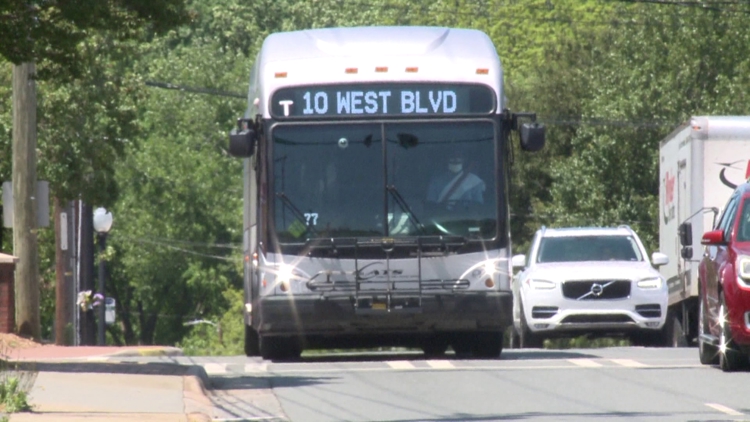

The state House advanced the PAVE Act, reshaping Charlotte’s transportation funding.
CHARLOTTE, N.C. — A bill outlining Charlotte’s transportation future cleared a key legislative hurdle Wednesday as the state House advanced Republican Rep. Tricia Cotham’s PAVE Act.
The legislation establishes a roadmap for major transportation investments over the next several years, aimed at giving local leaders more flexibility to modernize roads, rails and bus systems.
The bill moved forward with amendments that changed the original funding allocation. Rep. Jordan Lopez, a Democrat who represents part of Mecklenburg County in the state House, said the original proposal would have codified a 60/40 split, with 60% going to public transit and 40% to road funding.
“One of those amendments was in the section that allocated 60% of funds to public transit. There was an additional section added that capped rail spending to two-thirds of the 60%, which equated to 40%, so it reverts to the 40/40/20 that was proposed on the Senate side,” Lopez said.
Under the amended version, funding would be split 40% for roads, 40% for transit and 20% for rail projects. Despite the changes, Lopez called the bill a win for transit users.
“Investing in an expanded public transit system is one of the primary ways for people to get around in the east Charlotte area. We have one of the highest ridership lines in my district, the Number 9 line, and it’s because so many people rely on public transit to get from home to work or home to medical appointments,” he said.
The PAVE Act is separate from a state Senate bill that would authorize a one-cent sales tax on the Mecklenburg County ballot. That measure has been stalled in committee since April.
Robert McCutcheon, CEO of the Charlotte Regional Business Alliance, said the House bill’s advancement represents significant progress for the community.
“It’s absolutely critical for our area. 117 people a day move to the area. We expect the population to grow 50% by 2050. With that growth and keeping it, we need investment in infrastructure,” McCutcheon said.
McCutcheon added that the investment would create economic opportunities, with almost $20 billion in spending over the next 30 years generating economic growth and jobs in construction and system implementation.
The bill still faces additional legislative steps before becoming law.
Contact Walker Lawson at wlawson@wcnc.com or follow him on Facebook, X, Instagram and TikTok.
Download WCNC+ on your on Roku, Amazon Fire TV or Apple TV, and stream the news that impacts you for free.


